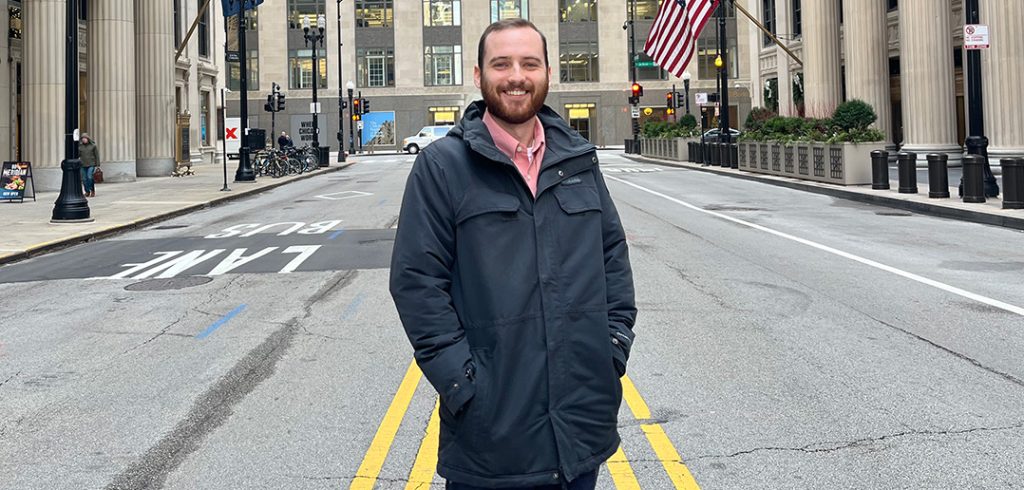Andrew Souther was able to conduct advanced research into workers’ performance as an undergraduate, thanks to a Cunniffe Presidential Scholarship.
As a student majoring in interdisciplinary math and economics, Andrew Souther, FCRH ’21, found his research interests leading him into an area that is particularly hard to study. While learning about worker-owned cooperatives in New York City, he found that he wanted to know more about how employees’ performance is affected by their sense of autonomy and participation in decision making.There are easier things to pin down. “Generally, as a field, economics is very focused on the ‘hard’ things,” such as wages and benefits, said Souther, now a research assistant at the Federal Reserve Bank of Chicago. “You have to be very careful to tease out the impacts of something like autonomy.”
To do that, he would need to design and conduct an experiment of his own. Luckily, he had received a Fordham scholarship that provided funding for just such a thing.
Leveraging Talent
Souther was one of the inaugural recipients of the Cunniffe Presidential Scholarship, created by a $20 million gift from Maurice J. (Mo) Cunniffe, FCRH ’54, and Carolyn Dursi Cunniffe, Ph.D., GSAS ’71, two of the most generous donors in Fordham’s history and supporters of its current fundraising campaign, Cura Personalis | For Every Fordham Student.
Their presidential scholarship has had 43 recipients to date, including 25 current students. It is meant to leverage the abilities of the most talented students, helping them succeed while also making an impact on the world. It funds tuition and living expenses but also academic enrichment—“probably the most important part” of the scholarship because it empowers recipients to pursue an interest, “be really good at it, and through that, make a contribution,” Mo Cunniffe said.
For Souther, this academic enrichment funding proved crucial: it enabled him to attend a summer workshop in behavioral economics at the University of Alabama, pay 400 people to take part in an experimental exercise during his senior year, and buy statistical software needed for analyzing the data.
Benefits of Autonomy
That study, as well as a follow-up study he conducted with two Fordham economics professors, Subha Mani and Utteeyo Dasgupta, shed light on the impact of giving employees a say in the work they perform. The interpersonal aspect proved important—for instance, when an “employer” participant let other participants choose their preferred tasks, they worked harder than when they got their preferred tasks as a result of a random assignment. They were also more likely to give back to the group by contributing to a communal fund.
It’s possible that employees are more appreciative “if you know that there’s a human being explicitly making a decision to … give you the autonomy,” Souther said.
Such under-studied questions are timely, especially in light of conversations about workers’ autonomy that arose out of the pandemic, he said.
“A lot of us spend at least eight hours a day at work for almost our entire life, and understanding the conditions that make work meaningful and motivating and interesting are absolutely crucial for having a productive and engaging and equitable economy,” he said.
Today, he’s getting close to submitting the research to an academic journal. He said the Cunniffe scholarship did more than propel this project.
“What it also did was allow me to go to Fordham. And that itself has had countless effects on my career and my life.”


